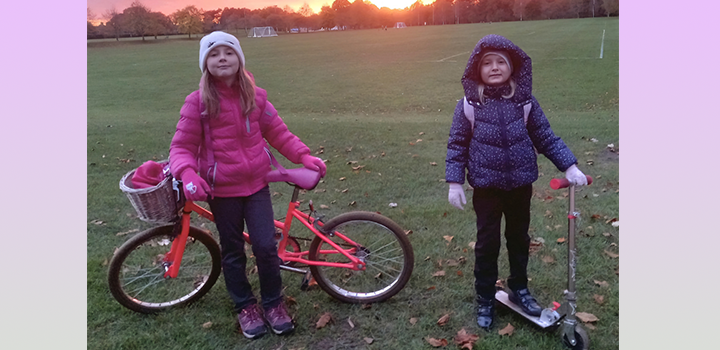UEA’s grant and funding success – March 2025
By: Communications

Archives Assemble: Activating the archives to collaboratively reimagine volcanic geoheritage
Project lead: Dr Martin Mahony
Collaborators: University of Bristol; University of Oxford; The National Archives; Montserrat Volcano Observatory; University of the West Indies; Montserrat National Trust; Montserrat Public Library; Montserrat Tourism Division
Martin Mahony (ENV and 3S Research Group) has received funding from the Arts & Humanities Research Council to work with colleagues in the UK and the Caribbean to shed new light on the volcanic geoheritage of the Caribbean Island of Montserrat.
The project brings together researchers from three UK universities, the UK National Archives, and the Montserrat Volcano Observatory with specialists from the Montserrat National Trust, Montserrat Public Library, Montserrat Tourism Division, and the Seismic Research Centre of the University of the West Indies.
Together, the team will build a new and accessible digital archive of materials which tell the story of the 1990s eruption of the Soufriere Hills volcano and its impacts on the people of Montserrat. This new archive will inform plans to develop a Geopark on the island, which will bring the history of the volcanic crisis to life within the very landscapes it helped transform.
The team will also be developing a piece of theatre which will explore the human aspects of living through a volcanic crisis – lives upended, urgent decisions, uncertain scientific advice, and lessons from history remembered or forgotten.
The Azaylia Foundation Childhood Cancer PhD Scholarship: Investigating the causes and consequences of RNA structurome dysregulation in fusion positive sarcomas
Project lead: Dr Darrell Green
Researchers at Norwich Medical School have been awarded a grant of £84,595 (plus an additional £50,000 from an anonymous donor) for a new PhD student research project to take place at the Biomedical Research Centre.
Funded by The Azaylia Foundation, which was created by reality TV star, model and former footballer Ashley Cain, in memory of his daughter Azaylia Diamond Cain, the project is led by Dr Darrell Green (MED).
Together with co-investigators at the John Innes Centre (Prof Yiliang Ding, also Honorary Professor at UEA) and clinical partners in Birmingham, the team will work towards the better understanding of how gene ‘shapes’ rather than gene sequences can affect the onset, progression and treatment responses of some childhood cancers.
Examining near-time intergroup contact effects via experience sampling methods
Project lead: Prof Rose Meleady
Prof Rose Meleady from the School of Psychology has been awarded £249,347 from the Leverhulme Trust for a project investigating how intergroup contact between people from different ethnic groups fosters social cohesion.
While previous research has typically examined the impact of intergroup contact on attitudes over timespans of months or years, this project will adopt a real-time perspective.
Using innovative experience sampling methods (ESM), researchers will capture interactions between individuals from different ethnic groups as they happen, providing new insights into their immediate ‘micro-level’ effects.
Cardiovascular magnetic resonance pulmonary flow haemodynamic biomarkers in pulmonary hypertension
Project leads: Dr Pankaj Garg (Principle Investigator); Dr Ciaran Grafton-Clarke (Co-Investigator and PhD student)
Dr Garg and Dr Grafton-Clarke have been awarded £284,158 from the British Heart Foundation to advance research into pulmonary hypertension (PH) – a serious condition that causes high pressure in the lung arteries, placing strain on the heart. Diagnosing and monitoring PH can be challenging due to its complex nature and wide-ranging causes.
Based at the Norfolk and Norwich University Hospital (NNUH), this study will use advanced cardiovascular magnetic resonance (CMR) imaging combined with cardiopulmonary exercise testing (CPEX) to better understand how blood flow patterns in the lungs relate to heart function and exercise capacity. In addition, the team will develop machine-learning tools to automate CMR analysis, improving efficiency and diagnostic accuracy.
By enhancing early diagnosis and refining risk assessment in PH, this research aims to support better treatment strategies and improve outcomes for patients with this life-limiting condition.
Towards information-centric charging management based electro-mobility
Project lead: Dr Xu Zhang
Collaborators: Xiaokang Zhou (Faculty of Business Data Science at Kansai University, Japan)
Dr Xu Zhang (the project's lead from UEA's School of Computing Sciences) and project partner Xiaokang Zhou have won funding, with a £9,465 award from the Royal Society for international exchanges with Japan.
The project title is 'Towards Information-Centric Charging Management based Electro-Mobility'.
SPARC: Secure platform for authenticated and reliable data exchange in connected vehicles, through CyberASAP Phase 1
Project lead: Dr Hassan Malik
Collaborators: Dr Mohsin Raza and Dr Riaz Ahmed Shaikh
Partners: University of Essex
With a funding award of £32,000, this project will develop a hybrid trust platform utilising machine learning, federated learning, and blockchain to ensure secure and reliable data exchange in connected vehicles.
By integrating anomaly detection and lightweight blockchain, we aim to enhance privacy-preserving trust validation and address mobility challenges within the connected vehicle ecosystem.
Digital preservation and immersive heritage: A case study of Blickling Hall’s Long Gallery
Project lead: Dr Cheng Wang
Partners: National Trust
Dr Cheng Wang has received UEA AHRC Impact Acceleration Account (IAA) Strategic Theme funding of £11,248. The funded project is in collaboration with the National Trust, using Blickling Hall as a case study to explore innovative methods for strengthening cultural preservation and engaging diverse visitor groups with digital heritage experiences.
This project involves the digital preservation of intricate patterns on a 400-year-old gallery ceiling, as well as the creation of an immersive system using emerging Augmented Reality (AR) technology.
The Funding Board agreed that it is a very compelling project, capable of solving a genuine conservation problem through the use of innovative digital technology and AR solutions. The board also indicated that this project is a strong multi-disciplinary story that could contribute to the University’s REF Impact.
Investigating how different memory systems interact to affect subjective experiences
Project lead: Dr Louis Renoult
Dr Renoult has been awarded £860k from ESRC to study how different memory systems interact to affect our subjective experiences.
Semantic and episodic memory, collectively referred to as declarative memory, are crucial aspects of cognition, central to adaptation to our environment and identity, and subject to meaningful changes across the lifespan. Semantic memory refers to an individual’s general knowledge of the world, detached from its context of acquisition (e.g “1984 is the title of a book written by George Orwell”), while episodic memory concerns the recollection of contextually specific events from one’s personal past (e.g “I remember reading 1984 at Hyde Park yesterday”).
Although textbook descriptions suggest that semantic and episodic memory are associated with clearly distinct content and subjective experience, different patterns of change in ageing and in patients’ populations, and distinct brain activations in neuroimaging studies, data collected in recent years suggest a more complex pattern.
The present research programme will develop new memory tests and experimental paradigms to reach a better understanding on how semantic and episodic memory differ in their representational content, in related subjective experience, and in neural substrates in young and older adults. Using a variety of behavioural, fMRI and EEG tasks, it is hoped that this research project will help break new ground in our understanding of these fundamental aspects of cognition.
New project to determine elemental composition of pig bone for optimised herd management
Partners: SUISAG
The Science Analytical Facilities have secured a £79,200 consultancy contract with SUISAG, a leading provider of Swiss pig genetics, health programmes, and herd management services.
This project will utilise the Mass Spectrometry ICP technique to determine the elemental composition of pig bone, providing valuable insights into animal health and nutrition. By analysing mineral content, they aim to contribute to optimising herd management strategies and enhancing overall production efficiency.
SUISAG's holistic approach aligns with the facilities’ expertise in advanced analytical techniques, strengthening UEA’s reputation as a trusted partner in research-led consultancy.
This collaboration highlights the Science Analytical Facilities’ ability to deliver high-quality scientific analysis to commercial partners, reinforcing UEA’s role in supporting industry advancements through cutting-edge research.
Do speakers of different languages communicate in a universal way?
Project lead: Prof Kenny Coventry
Prof Coventry has been awarded £570k from the Economic and Social Research Council (ESRC) to study whether people who speak different languages communicate in a universal way.
In two complementary Work Packages led by a UK-USA-German collaborative team, the project will:
Use cutting edge experimental methods to examine the impact of a wide range of parameters on demonstrative choice across diverse languages to establish commonalities and differences in spatial communication systems both between and within languages (UK-led WP1)
Examine the relationship between language use (between and within languages) and the nature of the environment in which speakers live (UK-led WP1)
Develop a systematic information-theoretic approach to spatial words, combining the cross linguistic experimental data with computational modelling (USA-led WP2).
The programme of work represents a timely and critical step change in understanding whether speakers of different languages fundamentally carve up the world in different ways, made possible as a result of recent innovations in methods and networks of collaborations across diverse languages of the required scale.
Developing a Digital Resilience Scale to support pre-teens online
Project leads: Dr Kim Bartholomew and Dr Simon P Hammond
Dr Bartholomew and Dr Hammond have been successful in securing £20k from the UEA Innovation Catalyst Fund. This funding will enable the development and validation of a new Digital Resilience Scale for use with pre-teens (8 to 12-year-olds).
For pre-teens, the internet is a prominent playground: a space where opportunities relating to education, socialising, play, and risk-taking are undertaken in increasingly independent ways.
Though there are concerns around implications for their mental health and well-being, the internet remains a space for experiential learning, where risks occur and mistakes will be made. It is how these risks are responded to which impacts the learning gained and children’s mental health.
Digital resilience is the capability to avoid or take appropriate action in the face of online risks. Research has begun to move beyond individual-based understandings of digital resilience to consider socio-ecological perspectives (Hammond, Polizzi and Bartholomew, 2023).
With the Innovation Catalyst funding, Bartholomew and Hammond will be able to develop and validate the new Digital Resilience Scale, and examine the hypothesised moderating role of digital resilience in the relationship between children’s exposure to online risks and their mental health, with the ultimate goal of creating a virtual online game that can be used to foster digital resilience and well-being in pre-teens.
The politics of military exercises in the Indo-Pacific: A mixed-method approach
Project lead: Dr Soul Park
Dr Park has been awarded research funding from the British Academy, for a project titled ‘The Politics of Military Exercises in the Indo-Pacific: A Mixed-Method Approach’.
This project intends to examine the alliance systems and alignment patterns in the region by focusing on joint military exercises within the context of US-China great power rivalry. Both the number and types of military exercises in the international system have seen an exponential growth in recent years, with a large percentage in the Indo- Pacific not only multinational in composition but also involving non-allies.
The project aims to better understand changing security dynamics and foreign policy calculus of key states in the region.
Related Articles

UEA’s grant and funding success – February 2026
Discover the latest research and funding grant successes happening within the University of East Anglia.
Read more
DOE climate report ‘demonstrably incorrect’, say leading scientists in new analysis
A leading climate scientist has sought to set the record straight over “demonstrably incorrect” claims made in a major US government report that misrepresented his work and downplayed the role of human activity in global warming.
Read more
A wheely good fundraiser for Norwich sanctuary seekers
UEA University of Sanctuary and the Norwich Bicycle Repair Cooperative have joined forces to provide bikes and parts to Norwich asylum seekers and refugees.
Read more